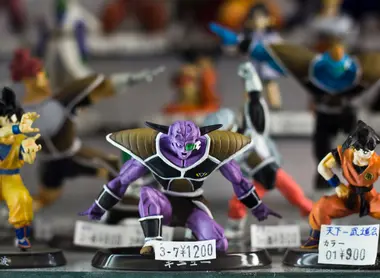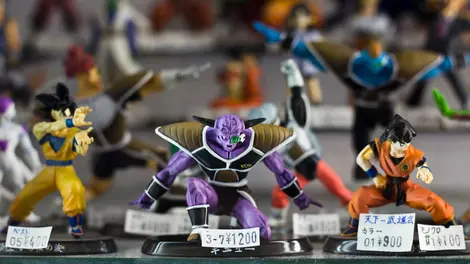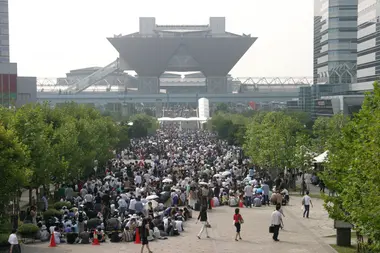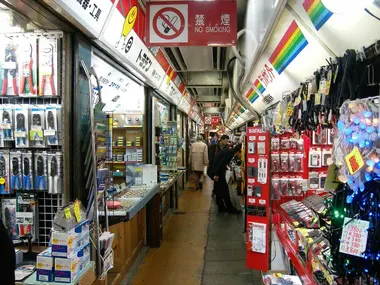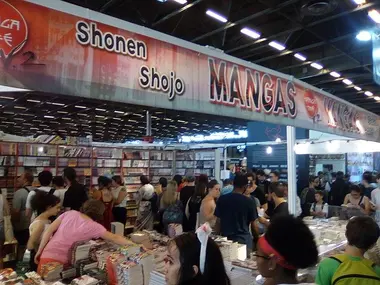Understanding Otaku culture
- Published on : 01/06/2024
- by : S.R.
- Youtube
Otaku culture, which originated in Japan and is now widespread throughout the world, fascinates as much as it intrigues. This phenomenon, which refers to a devouring passion for manga, anime, video games and other aspects of Japanese pop culture, has undergone a remarkable evolution since its inception. Let's delve into the world of otakus to understand its origins, characteristics and impact on modern society.
Origins and evolution of the term "Otaku
The term "otaku" has its roots in the Japanese language, where it literally means "your home". Originally, it was a polite way of addressing someone, made up of the honorific prefix "o" and the word "taku" (house). However, its meaning has evolved considerably over time.
It was in 1983 that journalist Akio Nakamori popularized the use of the term "otaku" in its current sense. He used it to describe an emerging social phenomenon: young Japanese people who shut themselves away in their homes, absorbed in their passions for contemporary Japanese culture. This new use of the word reflected a growing trend towards social isolation and rejection of traditional Japanese competitive culture.
In the 80s, being described as an otaku in Japan had a negative connotation. The term was associated with socially maladjusted individuals, obsessed with their interests to the point of neglecting their social and professional lives. However, the perception of otaku began to change at the turn of the millennium, thanks in particular to popular works such as "Densha Otoko", which presented a more positive image of this community.
Characteristics of otaku culture
Otaku culture is characterized by an intense and often exclusive passion for certain aspects of Japanese pop culture. The most common areas of interest include:
- Manga and anime
- Video games
- J-pop and idols
- Cosplay
- Collecting figurines and goodies
Otakus are distinguished by their in-depth knowledge of their favorite subjects. They often devote a great deal of their time and resources to their passion, amassing impressive collections and actively participating in events linked to their interests.
Another important characteristic is the creation of online and offline communities. Otakus gather on forums, social networks and at conventions to share their enthusiasm and discuss their common passions. Comiket, the otaku festival, is an emblematic example of such gatherings.
The social and cultural impact of Otaku in Japan
The influence of otakus on Japanese society is considerable and multifaceted. On the one hand, otaku culture has stimulated the Japanese economy, fuelling entire industries dedicated to manga, anime and derivative products. Districts like Tokyo's Akihabara have become hot spots for otaku culture, attracting visitors from all over the world.
However, the social impact of otakus has also given rise to debate and concern. Some criticize the social isolation and detachment from reality that can result from these intensive passions. The phenomenon of "hikikomori", individuals who totally isolate themselves from society, is sometimes associated with an extreme form of otaku behavior.
Nevertheless, otaku culture has also contributed to innovation and creativity in various fields. Animation studios like Gainax, founded by otakus, have produced groundbreaking works like "Neon Genesis Evangelion", pushing the boundaries of storytelling and animation.
The perception of Otaku in France and abroad
Internationally, and particularly in France, the perception of otaku differs markedly from that in Japan. The term has been adopted with a generally more positive connotation, simply designating enthusiasts of Japanese culture.
In France, the term "otaku" is often used more inclusively and less pejoratively than in Japan. It encompasses fans of Japanese manga, anime and video games, without necessarily implying asocial or obsessive behavior. This difference in perception reflects the growing popularity of Japanese pop culture in France and throughout the Western world.
Events such as Japan Expo in France bear witness to the craze for otaku culture and contribute to its normalization. These gatherings enable fans to celebrate their passion and share their interests in a social and festive setting.
Otaku passions and hobbies
Otakus are characterized by the diversity and intensity of their passions. Among the most popular activities are :
- Collecting: Whether it's manga, figurines or derivative objects, otakus are often passionate collectors. Stores like Mangadarake in Tokyo are havens for these collectors.
- Cosplay: The art of dressing up as manga or anime characters is a widespread practice, enabling fans to embody their favorite heroes.
- Creation: Many otakus take up drawing, writing fan fiction, or creating amateur video games, inspired by their favorite works.
- Video games: From massively multiplayer online games to Japanese role-playing games, otakus are often assiduous gamers.
- Event participation: Conventions, anime screenings, J-pop concerts are all opportunities for otakus to live their passion to the full.
These activities are not simply hobbies, but often a way of life for the most passionate otakus. They allow them to express their creativity, socialize with like-minded people, and fully immerse themselves in the worlds they love.
The Otaku phenomenon and information technology
Otaku culture is intimately linked to technological advances and the development of the Internet. Information technologies have played a crucial role in the expansion and evolution of this culture:
The Internet and online communities have enabled otakus from all over the world to connect, sharing their passions across geographical boundaries. Forums, social networks and streaming platforms have created virtual spaces where fans can exchange, debate and discover new works.
Virtual and augmented reality technologies open up new perspectives for otakus, enabling them to immerse themselves further in their favorite fictional worlds. Experiences such as virtual idol concerts bear witness to this fusion between technology and otaku culture.
The video game industry, a pillar of otaku culture, is constantly evolving technologically. Massively multiplayer online and mobile games have transformed gaming habits and created new forms of social interaction between otakus.
These technologies have not only facilitated access to Japanese culture for fans the world over, but have also enabled creators of otaku content to reach a wider audience. They have thus contributed to the globalization of otaku culture, while preserving its local specificities.
Challenges and controversies linked to otaku culture
Despite its growing popularity, otaku culture continues to face challenges and controversies, both in Japan and internationally:
Stereotypes and social stigmatization: Although perceptions have evolved, otakus are still sometimes subject to prejudice, being perceived as socially inadequate or immature. This stigmatization can have repercussions on their personal and professional lives.
Addiction and social isolation: The intensity of otaku passion can sometimes lead to addictive behavior, particularly when it comes to video games or excessive consumption of content. The "hikikomori" phenomenon in Japan is often associated, rightly or wrongly, with otaku culture.
Problematic representations in the media: Certain aspects of otaku culture, notably the representation of women in certain manga and anime, raise ethical questions and debates about sexism.
Piracy and copyright: The illegal distribution of manga and anime poses major challenges to the industry, threatening the economic viability of certain productions.
Faced with these challenges, the otaku community and the Japanese entertainment industry are constantly seeking to adapt and evolve. Initiatives aimed at promoting a more positive image of otakus, combating addiction and protecting creators' rights are being put in place. The evolution of otaku culture bears witness to its ability to reinvent itself while remaining true to its passionate roots.
In conclusion, otaku culture, with its intense passions and overflowing creativity, continues to fascinate and influence the world. Although not without its challenges, it represents a rich and complex cultural phenomenon, reflecting the social and technological evolutions of our time. To find out more about the places emblematic of this culture in Japan, don't hesitate to consult our guide on Discover : Tokyo for otaku.

